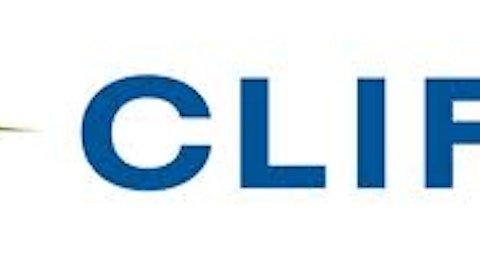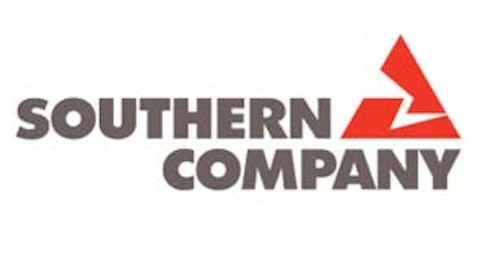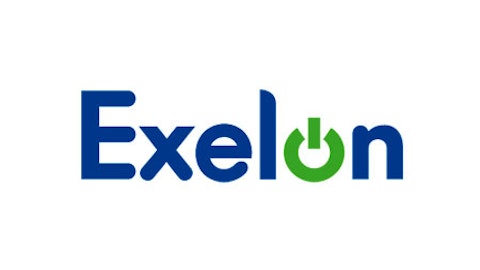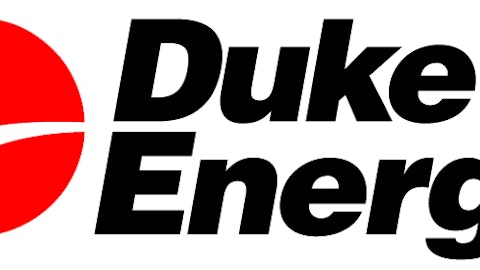This means Duke’s earnings would have been even worse if you strip out the addition of Progress and “favorable weather.” I don’t know about Duke investors, but I don’t want my utility relying on favorable weather to generate positive earnings growth. In addition, Duke’s peers did not have the same problem growing revenue and earnings. Integrys reported an impressive 34.48% jump in revenue, The Southern Company (NYSE:SO) reported a 4.9% increase, and even Consolidated Edison reported an increase of 3.44%. When your peers are growing and you are not, investors should take note.
Simple math
One of the biggest issues facing Duke is the company’s growth isn’t keeping up with the massive amount of shares the company issued to make this merger a reality. On a year-over-year basis, Duke’s share count is up 58%. However, looking at their core operating cash flow (net income + depreciation), this measure grew by 25%. In other words, Duke’s share count increased by an amount more than double the increase in operating income.
The same theme keeps playing out; Duke underperforms relative to their peers when it comes to operating cash flow growth as well. Leading the way once again was Integrys, which showed a 54% jump in core operating cash flow. While The Southern Company (NYSE:SO) came in second with a 33.7% increase, it seems like Consolidated Edison lagged Duke with a 13.65% increase. However, keep in mind, Consolidated Edison’s share count is up a scant 0.10% versus the 58% increase at Duke. Given the choice, I’ll take 13% growth in cash flow from a 0.10% increase in shares, versus a 25% increase from a 58% increase in shares any day.
Too many risks
If Duke’s questionable growth were my main issue with the stock, maybe some investors could overlook the problem and assume better days are ahead. However, there are several other issues investors need to face up to.
First, Duke’s interest expense as a percentage of operating income is higher than any of their peers. In fact, Duke pays about $0.30 of each $1 of operating income just in interest. By comparison, Consolidated Edison pays $0.27, The Southern Company (NYSE:SO)pays $0.24, and Integrys pays just $0.10. In addition, Duke was core free cash flow negative by over $300 million in the current quarter.
When you add it all up, investors just aren’t being rewarded enough to own Duke at these levels. While it’s difficult to recommend Consolidated Edison at these levels, due to their lower yield and lower growth rate, The Southern Company (NYSE:SO) and Integrys look like much better values.
Both Southern Co and Integrys offer better yields than Duke. These companies also have better expected growth rates, and superior cash flow growth. If you are looking for dividend coverage, Integrys is the only one of the four to have a reasonable payout ratio of about 50% based on core free cash flow. For Duke investors, the merger with Progress looks like a failure so far. If investors want their portfolio to progress in the right direction, I would suggest switching to Southern Co or Integrys instead.
The article Are We Sure This Is Progress? originally appeared on Fool.com.
Chad Henage owns shares of Integrys Energy Group (NYSE:TEG). The Motley Fool recommends Southern Company. Chad is a member of The Motley Fool Blog Network — entries represent the personal opinion of the blogger and are not formally edited.
Copyright © 1995 – 2013 The Motley Fool, LLC. All rights reserved. The Motley Fool has a disclosure policy.




